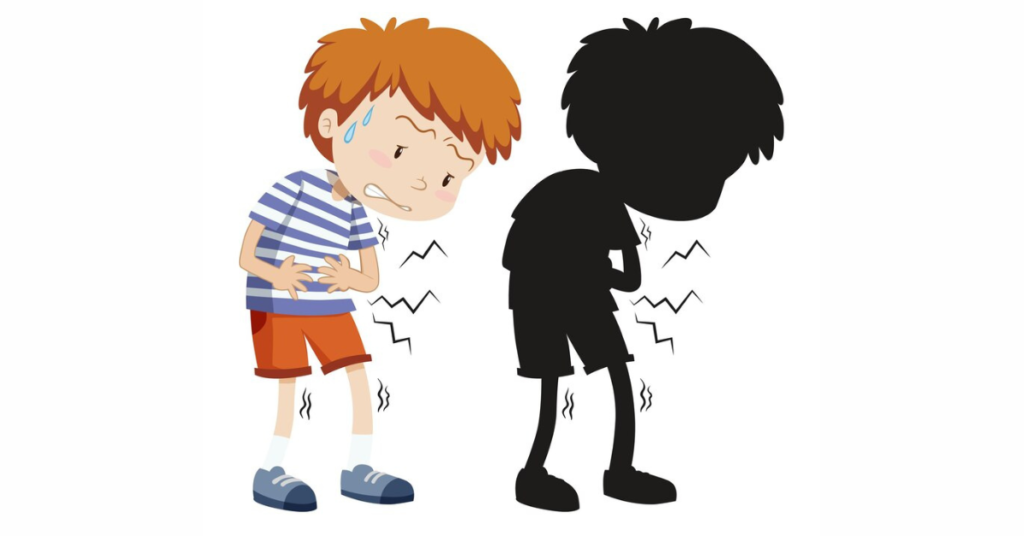Constipation in children is a prevalent issue that can be distressing not only for the child but also for their parents. https://me-encantas.com/2020/02/12/aprende-a-combatir-el-estrenimiento-en-ninos. This condition can disrupt daily life and cause significant discomfort. Understanding the causes, symptoms, and effective remedies is crucial for ensuring the health and comfort of a child suffering from constipation. This guide explores the intricacies of constipation in children and provides practical solutions to tackle this common problem.
Understanding Constipation
Definition and Overview
Constipation is defined as having fewer than three bowel movements per week, characterized by hard, dry stools that are difficult to pass. In children, this condition can vary in severity, from mild discomfort to severe pain and distress. Constipation can affect children of all ages, from infants to teenagers, and can have a significant impact on their overall well-being.
Also Read: The Benefits and Risks of Natural Loofa: An In-Depth Exploration
Causes of Constipation
The causes of constipation in children can be multifaceted and may include dietary, lifestyle, and medical factors:
- Dietary Factors:
- Low Fiber Intake: A diet low in fiber, which is found in fruits, vegetables, and whole grains, can lead to constipation.
- Insufficient Fluid Intake: Adequate hydration is essential for softening stools. Insufficient water intake can result in hard, dry stools.
- Excessive Consumption of Processed Foods: Foods high in sugar and low in fiber can contribute to constipation.
- Lifestyle Factors:
- Lack of Physical Activity: Physical activity helps stimulate bowel movements. A sedentary lifestyle can contribute to constipation.
- Toilet Training Issues: Children who are reluctant to use the toilet or hold their stools for extended periods may develop constipation.
- Medical Factors:
- Underlying Health Conditions: Conditions such as hypothyroidism, diabetes, and gastrointestinal disorders can contribute to constipation.
- Medication Side Effects: Some medications, including certain pain relievers and antidepressants, can cause constipation as a side effect.
- Psychological Factors:
- Stress and Anxiety: Emotional stress or anxiety can impact bowel function and contribute to constipation in children.
Symptoms of Constipation in Children
Recognizing the symptoms of constipation is essential for timely intervention. Common signs and symptoms include:
- Infrequent Bowel Movements: Fewer than three bowel movements per week.
- Hard, Dry Stools: Stools that are difficult to pass and may be painful.
- Abdominal Pain: Discomfort or pain in the abdominal area, often due to the buildup of stool.
- Straining: Difficulty and discomfort during bowel movements.
- Lack of Appetite: A decreased appetite or reluctance to eat due to abdominal discomfort.
- Behavioral Changes: Irritability, changes in mood, or reluctance to engage in regular activities.
Practical Solutions and Remedies for Constipation
1. Dietary Adjustments
Increased Fiber Intake:
- Fruits and Vegetables: Incorporate fiber-rich fruits such as apples, pears, and berries, as well as vegetables like broccoli, carrots, and peas.
- Whole Grains: Opt for whole grain cereals, breads, and pasta to increase fiber intake.
Adequate Hydration:
- Ensure your child drinks plenty of water throughout the day. Limit sugary drinks and opt for water or diluted fruit juices.
Limit Processed Foods:
- Reduce the consumption of processed and sugary foods, which can contribute to constipation.
2. Encourage Physical Activity
Regular Exercise:
- Encourage your child to engage in physical activities such as running, biking, or playing sports. Physical activity helps stimulate bowel movements and promotes overall digestive health.
Active Play:
- Incorporate active play into daily routines, such as outdoor games or activities that keep your child moving.
3. Establish Healthy Bathroom Habits
Routine:
- Encourage your child to use the toilet regularly, especially after meals. Establish a consistent schedule for bathroom visits to promote regular bowel movements.
Positive Reinforcement:
- Use positive reinforcement to encourage your child to use the toilet regularly and avoid holding stool.
4. Address Psychological Factors
Reduce Stress:
- Address any sources of stress or anxiety that may be affecting your child. Create a supportive and relaxed environment for your child.
Provide Reassurance:
- Reassure your child that using the toilet is a normal and healthy activity. Offer comfort and support during the process.
5. Medical Interventions
Consult a Healthcare Professional:
- If dietary and lifestyle changes are not effective, consult a healthcare professional. They may recommend medications, such as stool softeners or laxatives, to help relieve constipation.
Address Underlying Conditions:
- If constipation is due to an underlying health condition, work with your healthcare provider to manage the condition and alleviate constipation.
Preventing Constipation
Prevention is key to managing constipation and ensuring your child’s digestive health. Implementing the following strategies can help reduce the risk of constipation:
- Balanced Diet:
- Maintain a balanced diet with adequate fiber, fluids, and nutrients to support healthy bowel function.
- Regular Physical Activity:
- Encourage regular physical activity to promote healthy digestion and prevent constipation.
- Consistent Bathroom Habits:
- Establish and maintain consistent bathroom habits to encourage regular bowel movements.
- Hydration:
- Ensure your child stays well-hydrated by drinking plenty of water throughout the day.
- Education and Support:
- Educate your child about the importance of regular bowel movements and provide support to address any concerns or difficulties.
Conclusion
Constipation in children is a common issue that can cause significant discomfort and distress. Understanding the causes, symptoms, and practical solutions is essential for managing and preventing constipation. By making dietary adjustments, encouraging physical activity, establishing healthy bathroom habits, addressing psychological factors, and seeking medical advice when necessary, parents can effectively address constipation and promote their child’s overall well-being. Proactive measures and a supportive approach can help alleviate constipation and ensure a healthy digestive system for your child. – https://me-encantas.com/2020/02/12/aprende-a-combatir-el-estrenimiento-en-ninos







